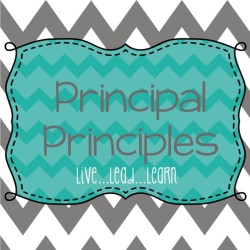 A new week….must be time for more confusing words! Continue to enjoy and get unconfused!
A new week….must be time for more confusing words! Continue to enjoy and get unconfused!
1. Many/Much – Like fewer and less, one of this pair is for countable objects (usually plural nouns) and the other for things that can’t be counted (singular).
I don’t have many pencils (not much pencils), and I don’t have much paper.
2. May/Might – May implies permission or probability; might implies possibility. May and might meaning probability/possibility are very close and often interchangeable. However, it is accepted that may is used when something is more likely to happen than when might is used.
I might go to the play, but I probably will stay home.
If you had taken the other route, you might have had an accident!
You may take the rest of the pizza. (I give you permission.)
You may take the rest of the pizza. (probable, if you get hungry enough!)
3. More Important/More Importantly –More importantly is an adverb and used most often as a transition. More important is an adjective and usually used in a comparison.
I need to finish the reading for this course. More importantly, I need to get started on my project.
Getting started on my project is more important than going to the zoo today.
4. News/Mathematics/Physics and Other Such Singulars – Although these words end in -s, they are all singular and use singular verbs.
The news is good. (not are good)
Physics is a difficult subject for me.
5. None is/None are – This one can be tricky. None is one of the indefinite pronouns (other indefinite pronouns include someone, nobody, several, anything, and many more) that can be either singular or plural depending upon the noun to which it refers. That noun is often in a prepositional phrase that follows:
None of the cake is gone.
None of the people are here.
However, to confuse us more, none is singular when it means “not one” (and also in formal use).
None of the cookies has been eaten. (Singular – means not one of the cookies has been eaten.)
The best thing to do is to say not one if that is what you mean — and use the singular verb. Otherwise, have the verb agree with the noun that is being referred to.
6. Only – I love this one, because so much depends upon where you put it in the sentence. Only will generally go with the word it is closest to:
Only she punched her friend in the arm. (no one else did)
She only punched her friend in the arm. (she didn’t do anything else)
She punched only her friend in the arm. (no one else)
She punched her only friend in the arm. (no wonder!)
She punched her friend only in the arm. (nowhere else)
She punched her friend in her only arm. (too bad)
Usually, we don’t make mistakes in sentences like this, but there is a common mistake in the position of only:
We only have five dollars for the movie. (incorrect, but understandable)
We have only five dollars for the movie. (correct)
7. Passed/Past – Passed is the past tense of the verb to pass. Past is a preposition.
We passed the church on our way to school. (verb)
We went past the church on our way to school. (preposition)
8. Precede/Proceed – Precede means “to come before” something else. Proceed means “to continue along.”
The rally will precede the game.
The parade will proceed down Main Street.
9. Principal/Principle – There are actually four meanings of these words: three of them are spelled principal, and only one is spelled principle.
There is a new principal of the high school. (head of a school)
I need to figure our the principal and interest of my mortgage. (financial meaning)
I received a principal role in the play. (the only adjective in the four; means the main one)
It is against my principles to lie. (rule or ethic)
“See” you next weekend for more confusing words!
Books make great graduation gifts (especially grammar books)….keep the learning going over the summer!
Graduate going off to college? A grammar book will really help with writing papers!



Hi – Thanks for all the good tips. But…what about “different from” and “different than” ? Is one or the other more correct than the other?
Yes, the correct way to phrase it is different from. I have had questions about that one myself!
Dear Arlene,
When can one use spelled and spelt? what are their differences?
Thanks.
Pat.
Good question — and I don’t know the answer offhand. I have not seen spelt used, lately at least. I don’t think it is a standard spelling. The past tense of spell is generally spelled.
Hi Arlene,
I enjoy your weekly grammar lessons very much. I have always been confused about “everyone” and “everybody”. When do you use them; in what context?
Thanks.
Ro Blake
Everyone an everybody are interchangeable — and are singular, so they take a singular verb:
Everyone is here.
Everybody is here.
However, sometimes, every one can be two separate words…..I guess every body can be too, but not usually!
Every one of the cookies is gone.
Every body is enbalmed in this room.(!!)
Glad you like the blog!
I noticed the four periods and am wondering about them. In fact, I’m confused. Could it be an ellipsis on steroids?
‘A new week….must be time for more confusing words!’
Ha! Yes, that is exactly what it is…or a writer on steroids! I noticed it as I was writing it, and for some reason decided to go with it. To my readers, an ellipsis has three dots, except when one is the period at the end of a sentence.